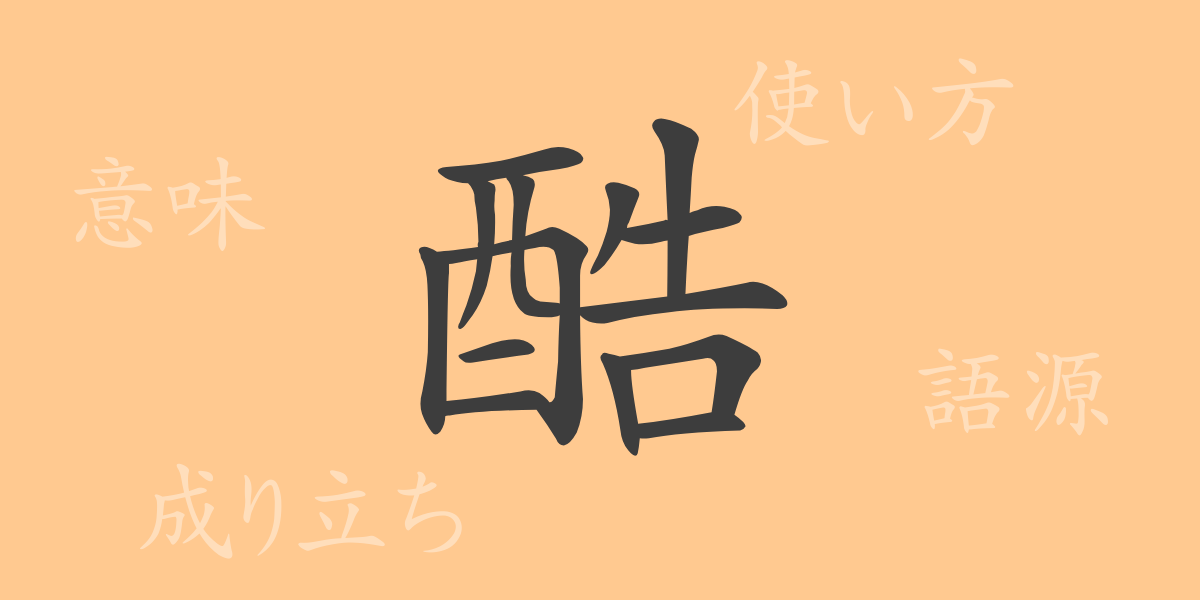In Japanese writing, kanji are essential for expressing depth of meaning and beauty of language. Among them, the kanji “酷” (こく, koku) is known for making a particularly strong impression. This article delves into the origins, meanings, usages, readings, and idioms or proverbs involving “酷” (こく, koku), uncovering its intriguing charm.
Origins of 酷(こく, koku)
The kanji “酷” (こく, koku) has a complex history originating from ancient China. It originally consisted of “酉” (さけびと, sakebito), symbolizing alcohol production, and “告” (こく, koku), representing suffering. Over time, this combination evolved into the current form “酷” (こく, koku). Throughout this process, “酷い” (ひどい, hidoi) came to mean severe or harsh.
Meanings and Uses of 酷(こく, koku)
The kanji “酷” (こく, koku) is generally used to denote “cruel” or “extreme.” In Japanese, it is employed to express something exceedingly harsh, severe, or merciless. For example, you can see it in phrases like “酷な批評” (こくなひひょう, kokuna hihyou) meaning “harsh criticism” or “酷な仕打ち” (こくなしうち, kokuna shiuchi) meaning “cruel treatment.”
Readings, Stroke Count, and Radical of 酷(こく, koku)
The kanji “酷” (こく, koku) may be challenging to remember due to its distinctive shape and meaning, but understanding the following details can enhance comprehension.
- Readings: The on’yomi (音読み) is “コク” (こく, koku). There are no kun’yomi (訓読み).
- Stroke count: 14 strokes
- Radical: 酉(さけびと, sakebito)
Idioms, Phrases, and Proverbs Using 酷(こく, koku)
The kanji “酷” (こく, koku) is used in various idioms, phrases, and proverbs. Here are some examples:
- 酷評(こくひょう, kokuhyou): Very harsh criticism.
- 酷似(こくじ, kokuji): Very closely resembling.
- 無酷(むこく, mukoku): Not cruel.
These expressions are used in daily life to accurately convey emotions and situations.
Conclusion on 酷(こく, koku)
Through this article, we hope you have gained insight into the rich meanings, usages, and historical background of the kanji “酷” (こく, koku). Understanding the beauty of the Japanese language and the powerful meanings behind each kanji is crucial in using words effectively. Continue exploring the charm of kanji like “酷” (こく, koku) to achieve more nuanced and enriched expressions.

























